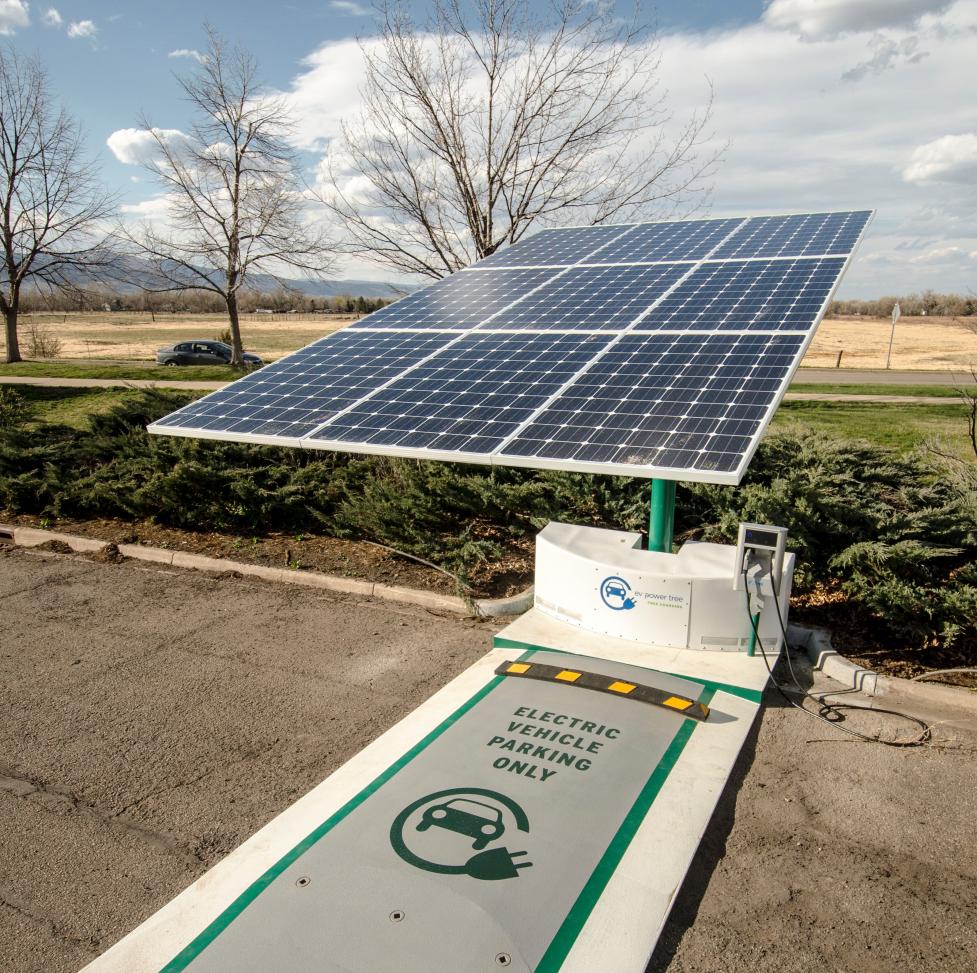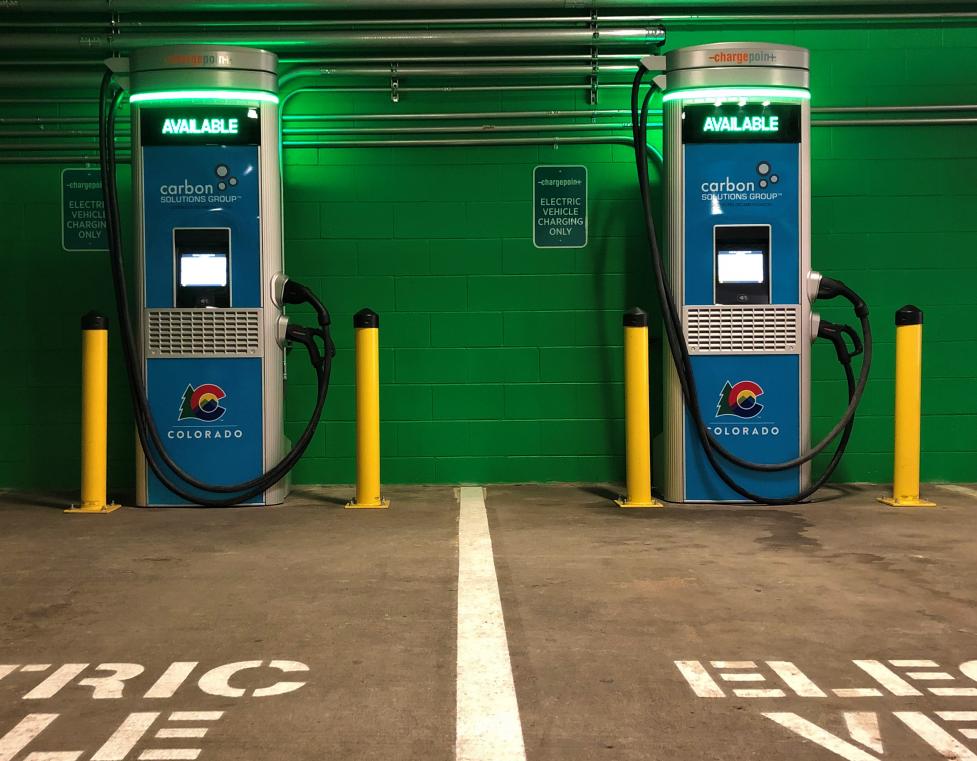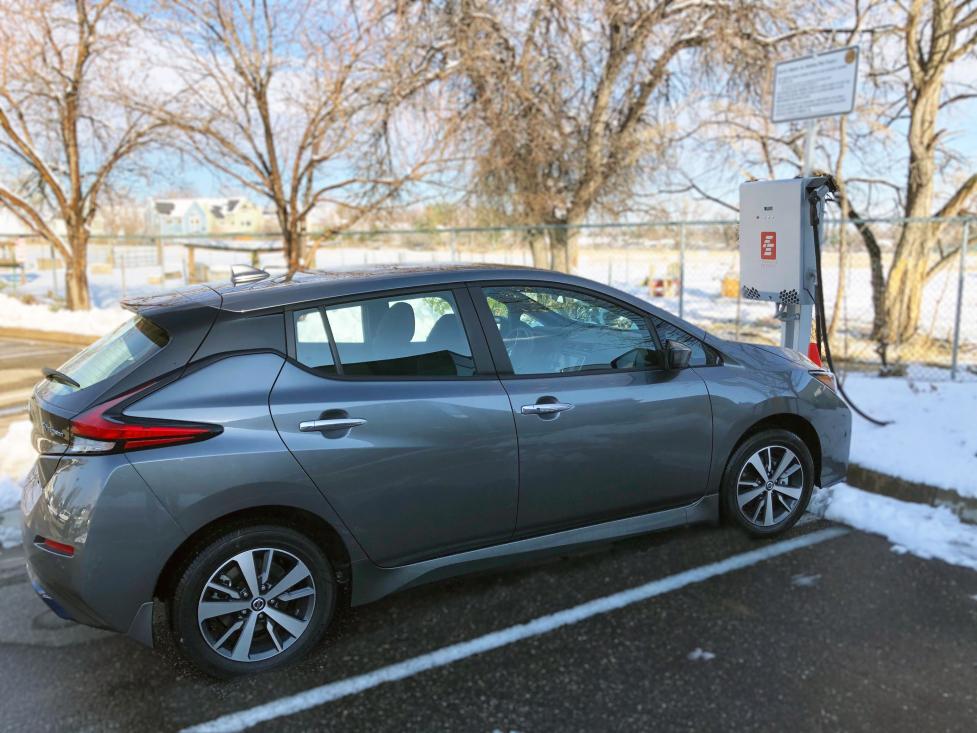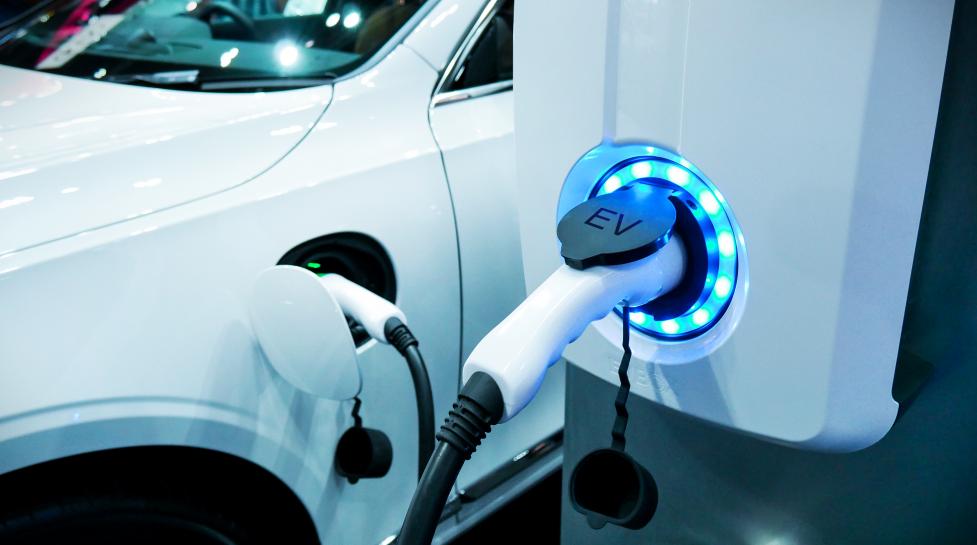Learn why electric vehicle technology matters and how the city is expanding its network.
Electrifying our transportation matters.
Transitioning from a fossil-fuel based society to one that prioritizes stable, accessible and renewable options is a critical task on our journey to become a climate resilient community.
The transportation sector is poised to take over as the largest contributor to our community’s greenhouse gas emissions (GHG). As shown in the GHG report, transportation accounted for 1/3 of the community's emissions – even with travel restrictions due to COVID.
Modern electric vehicles (EVs) are more energy efficient and environmentally beneficial than their gasoline and diesel counterparts, even when they are charged with today’s still largely fossil fuel-based electricity. The average EV emits 50% less carbon dioxide per mile than a gasoline vehicle, a number that will continue to improve as the electric grid becomes cleaner.
EVs also contribute to better air quality. Unlike gas and diesel-powered cars, they do not release toxic gases that pollute the air we breathe. These gases also cause ground-level ozone, a harmful air pollutant that can damage our lungs.

Solar-powered electric vehicle charging station
Switching to EVs and expanding our local charging network builds a healthier and more sustainable transportation system. This is critical to achieving one of the city’s main climate goals, carbon neutrality, which means absorbing as much carbon as our community produces.
Affordability is improving.
EVs also cost less to drive. This is because, on a per energy unit basis, they can go much farther than their gasoline counterparts. Many modern EVs exceed 110 miles per gallon equivalent (MPGe) compared to an average of 22 miles per gallon (MPG) for gasoline vehicles.
EVs also have lower maintenance costs because of their streamlined engines. Best of all, EV owners can say goodbye to oil changes!
Federal and state tax credits can save EV buyers up to $10,000. Check out Boulder County’s Electric Vehicle Resources and Information for details.
Xcel Energy also offers a variety of informational resources on home charging for multifamily properties, incentives and tax credits, and EV charging programs.
Charging Across the City
Not everyone has place to charge their car at home or work. Some days, you may need more charge than you thought. The city currently operates 48 public EV charging stations located at recreation centers, downtown parking garages and other facilities throughout the city.
There are also more than 250 privately-owned stations available in Boulder.
“We are excited to expand our electric vehicle charging network in Boulder,” said Transportation and Mobility Director Erika Vandenbrande. “Making it easier and more convenient to charge EVs will help the city achieve our goal to reduce greenhouse gas emissions from vehicles by 30% by 2030.”
Fast Chargers
Several fast EV chargers, also called level-three chargers, have been installed in the 1500 Pearl Street parking garage. This advanced technology provides a quick charge for users on the go. A completely empty battery will charge to 80% full in just 20 to 30 minutes, making level-three chargers 10 to 20 times faster than level-two chargers.
The new stations are part of the Colorado Energy Office Fast Charging Corridor, an effort to develop high-speed charging stations at strategic locations across the state.

Fast electric vehicle chargers in the 1500 Pearl Parking Garage.
EVs + Solar = a big win for the climate.
While EVs already generate fewer emissions than gas-powered cars, their potential as tools to address climate change grow when combined with solar energy. You can help our community work towards by installing solar panels on your home, buying shares in local solar gardens or leasing panels from a third party.
Learn more about how to go solar.
EVs open the door to more than just driving.
Last year, the City of Boulder partnered with Fermata Energy to test whether new electric vehicle charging technology could provide the city innovative ways to manage its energy load and reduce energy costs. While city fleet vehicle is plugged in for charging, it can provide power back to the building when needed to help manage how much grid electricity is needed.
One year in, the pilot program is showing financial promise. According to the project’s annual report, the two-way charging system reduces costs by about $250 per month, cutting the North Boulder Recreation Center’s electricity bill by about 3.4%. This is with just one vehicle and one two-way charger. In the future, the city hopes to explore the benefits of a larger fleet application, as well as how vehicles can support backup power needs during outages.

A grey Nissan Leaf is plugged into a two-way charger at the North Boulder Recreation Center.
Other Ways to Electrify Your Travel
In addition to EVs, there are other fun and convenient ways to get around Boulder without generating greenhouse gas emissions. The local HOP bus fleet includes several all-electric, emissions-free buses that serve key community destinations, such as the CU Boulder campus and the 29th Street Mall. And Boulder B-Cycle, the local bike share service, has converted 100% of their bicycles to e-bikes, making it a breeze to scale Boulder’s hills and get where you need to go.
Resources
Keep Reading
News keep reading
-
Boulder Invites Feedback on Conceptual Design Alternatives for a Safer Folsom Street
-
City of Boulder Begins Converting Streetlights to More Efficient, High-Quality LEDS
-
Learn About North 30th Street Design Concepts for Safer, More Connected Travel Choices
-
Boulder to Celebrate Annual Winter Bike to Work Day on Friday, Feb. 14
